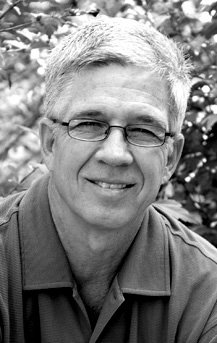Ancient Words: Heroes of
Renown,
Frances
Crosby (1820-1915)
Frances Jane van Alstyne (March 24, 1820 – February 12, 1915), more commonly known as Fanny Crosby, was an American mission worker, poet, lyricist, and composer. She was one of the most prolific hymnists in history, writing more than 8,000 hymns and gospel songs, with more than 100 million copies printed, despite being blind from shortly after birth. She is also known for her teaching and her rescue mission work. By the end of the 19th century, she was a household name.
Crosby was known as the “Queen of Gospel Song Writers” and as the “Mother of modern congregational singing in America”, with most American hymnals containing her work. Her gospel songs were “paradigmatic of all revival music”, and Ira Sankey attributed the success of the Moody and Sankey evangelical campaigns largely to Crosby’s hymns. Some of Crosby’s best-known songs include “Pass Me Not, O Gentle Saviour”, “Blessed Assurance”, “Jesus Is Tenderly Calling You Home”, “Praise Him, Praise Him”, “Rescue the Perishing”, and “To God Be the Glory”. Some publishers were hesitant to have so many hymns by one person in their hymnals, so Crosby used nearly 200 different pseudonyms during her career.
Crosby also wrote more than 1,000 secular poems and had four books of poetry published, as well as two best-selling autobiographies. Additionally, she co-wrote popular secular songs, as well as political and patriotic songs and at least five cantatas on biblical and patriotic themes, including The Flower Queen, the first secular cantata by an American composer. She was committed to Christian rescue missions and was known for her public speaking.
Crosby was proud of her Puritan heritage. She traced her ancestry from Anna Brigham and Simon Crosby who arrived in Boston in 1635 (and were among the founders of Harvard College); their descendants married into Mayflower families, making Crosby a descendant of Elder William Brewster, Edward Winslow, and Thomas Prence, and a member of the exclusive Daughters of the Mayflower. At six weeks old, Crosby caught a cold and developed inflammation of the eyes. Mustard poultices were applied to treat the discharges. According to Crosby, this procedure damaged her optic nerves and blinded her, but modern physicians think that her blindness was more likely congenital and, given her age, may simply not have been noticed by her parents.
At age eight, Crosby wrote her first poem which described her condition. She later stated: “It seemed intended by the blessed providence of God that I should be blind all my life, and I thank him for the dispensation. If perfect earthly sight were offered me tomorrow I would not accept it. I might not have sung hymns to the praise of God if I had been distracted by the beautiful and interesting things about me.” She also once said, “when I get to heaven, the first face that shall ever gladden my sight will be that of my Savior”. According to biographer Annie Willis, “had it not been for her affliction she might not have so good an education or have so great an influence, and certainly not so fine a memory”.
Crosby was a longtime member of the Sixth Avenue Bible Baptist Church in Brooklyn, New York, which has been in existence continuously since 1867. She wrote hymns together with her minister Robert Lowry and Howard Doane (Info shared from Wikipedia). Churches, all over the world, sing her songs today, expressing her spiritual mind penned with spiritual eyes in wonderful, beautiful, inspiring song. Thank you, Fanny, “Hero of Renown”!
(Scott and Jane Johnson minister with East Faulkner Church of Christ and BRG Bible. Bible questions can be sent to [email protected].)
